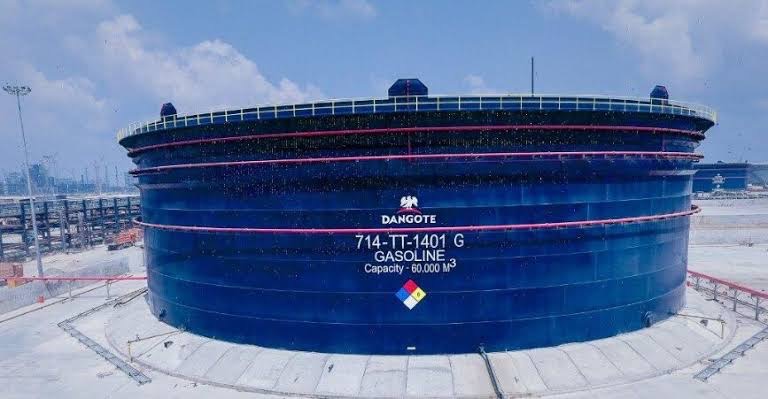KEY POINTS
- Dangote Refinery will suspend petrol sales in naira from Sept. 28 after exhausting crude-for-naira allocations, advising marketers to seek refunds.
- The move coincides with mounting labour tensions after unions alleged the sack of over 800 Nigerian workers, threatening nationwide action.
- Analysts warn petrol prices could spike above ₦900 per litre as fears of dollarisation in Nigeria’s fuel market intensify.
The Dangote Petroleum Refinery, Nigeria’s flagship private downstream asset, has suspended sales of petrol in naira, setting the stage for another round of turbulence in the country’s fuel market.
In a late-evening email to its customers on Friday, the refinery said the policy shift would take effect on Sunday, September 28, after exhausting its crude-for-naira allocation.
The company added that it could no longer sustain local currency transactions for premium motor spirit, or PMS, and advised marketers with ongoing naira-based contracts to request refunds.
The notice, signed by the refinery’s commercial operations team, explained: “We have been selling petroleum products in excess of our Naira-Crude allocations and, consequently, we are unable to sustain PMS sales in Naira going forward.”
Workers’ unrest adds fuel to the fire
The suspension comes at a delicate moment for Africa’s largest refinery. Only days earlier, labour unions accused the company of mass layoffs, claiming more than 800 Nigerian workers were terminated in what they described as “anti-labour practices.”
The Petroleum and Natural Gas Senior Staff Association of Nigeria (PENGASSAN) has since threatened solidarity actions unless the move is reversed, warning of nationwide disruptions.
It is not the first time Dangote has temporarily abandoned naira sales. In March, the refinery halted local currency transactions over similar allocation shortfalls, briefly pushing petrol prices at the pump close to ₦1,000 per litre.
That episode deepened public unease about the creeping dollarisation of Nigeria’s fuel trade, with analysts warning that middle-class households bore the brunt of the squeeze.
This latest decision risks reopening the same wounds. “Prices could easily climb above ₦900 per litre,” said Jeremiah Olatide, chief executive of Petroleumprice.ng. “Dangote’s naira sales had been a major factor keeping the market stable in recent months.”
The refinery, commissioned last year amid fanfare, is viewed by government as central to its energy reforms and strategy to curb reliance on imported fuel. But its twin battles—currency shortages and labour unrest—are testing that role.
With Nigeria’s foreign exchange reserves under renewed pressure and reforms biting into household budgets, the suspension could complicate official efforts to stabilise the market and avert public anger.
Industry stakeholders now fear that without a quick resolution, both pump prices and industrial peace could spiral further out of government’s control.



